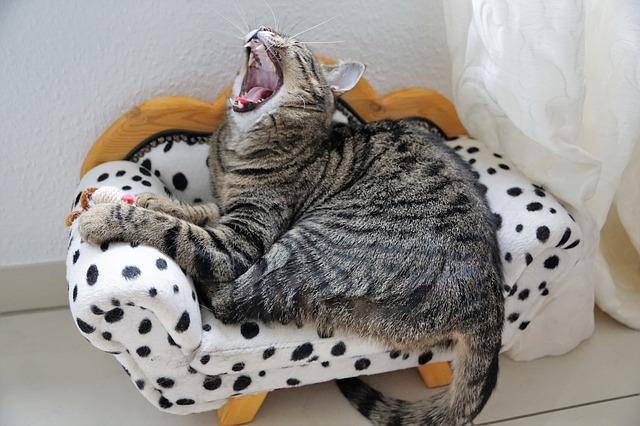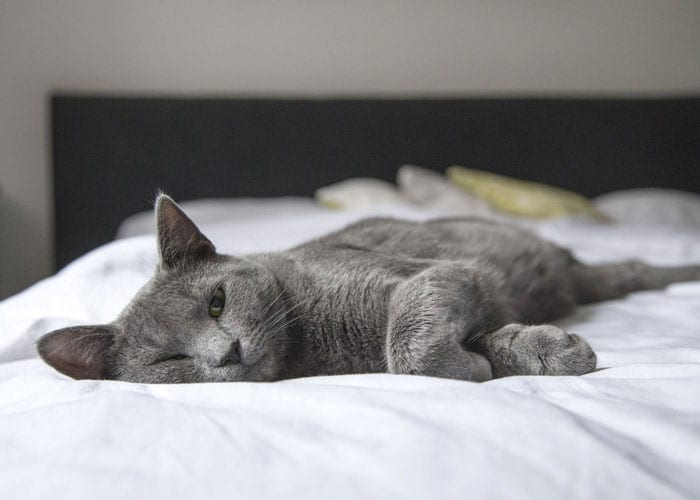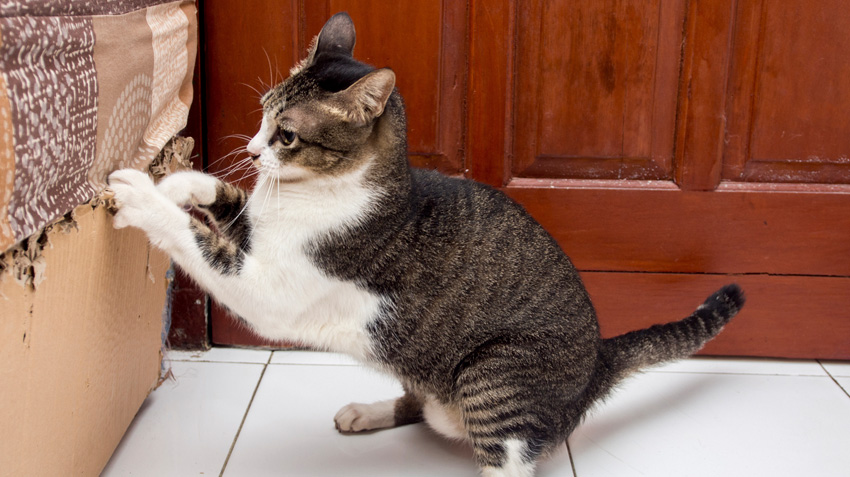If you are a cat parent, you probably have lots of questions about the neutering surgery.
You probably wonder about the entire procedure from start to finish as well as how your cat’s behavior will be affected.
Even though neutering is done to try to curb some behaviors, there are always some exceptions.
So, what exactly will change after your cat has been neutered? Let’s investigate…
How Do Male Cats Behave After Being Neutered?
Neutering is typically done to control some undesirable behaviors in male cats. This is because most sexual behaviors are directly linked to the testosterone hormone.
Once a cat has been neutered, you will notice some changes in their mannerisms almost immediately.
One of the interesting changes in neutered cats is the reduced desire to roam.
Male cats have a natural propensity of roaming as a way of looking for mates or prey. They also roam as a way of marking and defending their territory.
But when testosterone levels are put in check, the cat will not have the urge to roam.
Another noticeable change in your cat is a reduced urge to spay—he will no longer have a desire of spaying.
Granted, some neutered cats may still spay but these are usually isolated incidents that are caused by other things like nervousness, disease, discomfort, etc.
However, the spaying that happens as a way of marking their territory will be eliminated almost completely.
Do Male Cats’ Behaviors Change After Being Neutered?

There will be some noticeable behavior changes once you neuter your cat.
For once, your cat will be less aggressive and more friendly. This is because the aggression in male cats is largely due to their testosterone levels.
There is however a misconception that neutered cats will be lazy and overweight.
As long as you keep feeding your cat a well-balanced diet and provide lots of exercises and mental stimulation, the cat should just be as healthy and exciting as before.
Related Post: Why Is My Male Cat Sleeping A Lot After Neutering?
Do Male Cats Behave Better After Being Neutered?
Male cats can be such a handful. They are often boisterous as they move around the house matter-of-factly like they are boss.
It is hard getting them to be gentle and calm – but all this can change when they get neutered.
A neutered male cat will not only have a better temperament but will also be more affectionate towards other cats as well as their human family members.
Because they don’t have sexual urges anymore, neutered cats will not be driven to fight over territories with other cats and so they will be more peaceful.
If your cat was a notorious humper, the humping will also stop after the neutering procedure.
Related Post: Can A Neutered Cat Get Erect?
Do Male Cats Get Aggressive After Being Neutered?

Felines are territorial and that is why male cats naturally hiss at and attack any other cat that might be deemed to be encroaching on their space.
Even though neutering reduces the testosterone levels in the cat, it doesn’t eliminate it and the cat can still get territorial – albeit with less aggressive behavior.
So, the sexual urges, as well as the spaying behavior, can be controlled by neutering but the personality of your cat will remain largely unchanged.
For instance, if your cat was stubborn, don’t expect it to change just because he has been fixed.
How Long After Neutering Does Cat Behavior Change
After the neutering process, the cat will not start exhibiting appropriate behavior right away. You may have to wait for 3-4 weeks to see any significant behavior change.
Furthermore, cats that were neutered when they were over a year old may continue exciting aggression after getting neutered.
That is why it is important to get your cat neutered when they are still kittens or work with a breeder who neuters them before handing them over to you.
How Long After A Male Cat Is Neutered Will He Calm Down?

After you bring your cat home from the surgery appointment, he will still be heavily medicated and the meds will need some time to wear off. For instance, anesthesia will clear from the cat’s system after 24 hours.
The vet may also have applied some ointment in your cat’s eyes to prevent them from drying out.
As a consequence, your cat may be erratic and uncomfortable for a while.
After the first 24 hours have elapsed, the cat should be getting back to normal behavior because the anesthesia will have disappeared from their system.
It is therefore a good idea to stay close to your cat on the first night just to keep an eye on them in case they need your help.
Risks of Neutering Cats
While there are numerous benefits of neutering cats, there are still some notable risks.
The first risk is the possibility of post-operative infections. Ideally, your cat should be put on antibiotics to prevent this.
You may also want to keep your cat and the environment clean at all times to reduce the chances of an infection.
Excessive bleeding and wound breakdown are other possible risks. Although the instances of such are rare, this could necessitate another surgery or even result in death in severe cases.
Post-Neuter Surgery Care
Every pet parent should take care of their invalid pet by following the recommendations of the vet to avoid any ugly incidents.
Remember, your cat will most likely be tired and feeling sickly for up to 84 hours after the surgery.
During this time, you will want to monitor them closely to make sure their health is improving and not deteriorating.
Here are some of the things you can do to take good care of your cat:
- Administer all the prescribed meds as per the instructions of the vet
- Try not to disturb your cat through play and exercise for at least 2 weeks after the surgery. This will give him enough time to rest and recover. Make sure the cat is indoors all time during this period.
- Monitor the incision for any signs of swelling, redness, or discharge. If you see any of this, call your vet immediately because it could indicate an infection.
- Use an e-collar to stop your cat from licking his wound.
Parting Thoughts
If your neuter your cat, you can expect to see some noticeable changes in their behavior.
However, the neutering procedure may not necessarily change their character.
If your cat is naturally stubborn, he may remain stubborn post-surgery.
What will change is any behavior that is directly related to high testosterone levels.
Related Posts:

Hi! I am Eleanor Price. I started this website after my cat, Louie, almost died from a case of botulism (a type of food poisoning often caused by bacteria that grow on food items). Turned out that my cat’s diet was the problem. I have made it my duty to provide the best information and recommendations about everything cat lovers need to know about their felines’ health and wellbeing. My goal is to find the most informative content on anything feline-related and share it with fellow hardworking kitty lovers.

